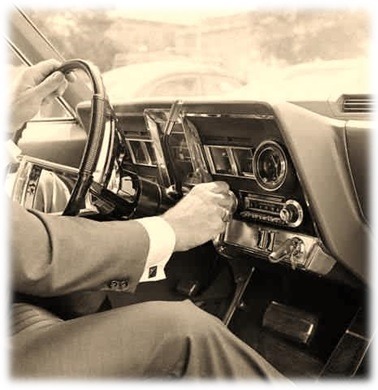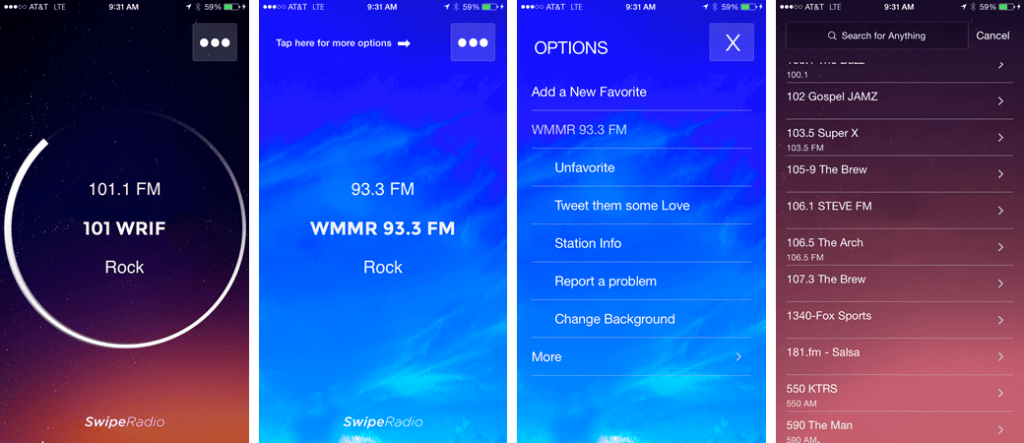 Over the course of the last several months, we have addressed the changing consumer mindset when it comes to instant-gratification. You know the phenomenon as “skipping.” Bill Jacobs wrote about it last in a post about song skipping. I followed that up with a “Welcome to the Skiposphere” post that provided more thoughts about how technology is changing the ways and rates of speed in which consumers are making decisions.
Over the course of the last several months, we have addressed the changing consumer mindset when it comes to instant-gratification. You know the phenomenon as “skipping.” Bill Jacobs wrote about it last in a post about song skipping. I followed that up with a “Welcome to the Skiposphere” post that provided more thoughts about how technology is changing the ways and rates of speed in which consumers are making decisions.
In this morning’s post, Mike Stern chimes in with additional insight about how radio programmers can learn from new platforms about the need to deliver entertainment and information in compelling, attention-getting packages. Or else. – FJ
An article that appeared online last year, “The Skip,” detailed Spotify song skipping. Here’s the amazing data: nearly 50% of all songs are skipped, more than half of all songs are skipped after the first ten seconds and the average Spotify listener skips more than 14 times an hour.
If you think those numbers are mind-boggling or if they don’t seem realistic, spend some time with someone who has a profile on Tinder. For the uninitiated, Tinder is a dating app that draws on your Facebook profile and current location (using your phone’s GPS) to introduce you to potential romantic matches in your area.
 Due to the geolocation element of the platform, Tinder has gained a reputation for being used for casual hook ups rather than for finding that LTR, but that’s neither here nor there. The interesting part is the evaluation process users employ on when they use the app.
Due to the geolocation element of the platform, Tinder has gained a reputation for being used for casual hook ups rather than for finding that LTR, but that’s neither here nor there. The interesting part is the evaluation process users employ on when they use the app.
Armed with very little information about a perspective match – essentially first name, age and a few photos — users are able to anonymously accept or reject potential matches simply by swiping right or left on their phone’s screen. If two people both swipe right (a mutual “yes”), they are a “match” and can start to send each other messages.
As of last fall, SayDaily reports that Tinder was reportedly getting 800 million swipes per day, which has led to other developers using the same decision-making system. A few examples include Next, a music discovery app where musicians can share songs and connect with people who swipe right, Daily enables selection of news content based on a swipe, Jobr for people looking for new employment, Weotta which shows prospective diners nearby restaurant options, and Bark Buddy which profiles dogs available for adoption in the user’s area.
But this yes/no mechanism takes on new meaning for our industry programmers and on-air personalities with a new app called SwipeRadio where you can subscribe to the streams of all your favorite stations – terrestrial or pure-play. If a station or channel is playing a song you like or discussing a topic that interests you, great. If not, just swipe right and move on to the next stream.
The example below is from an article in Techcrunch, headlines with “A faster way to listen to terrestrial radio on your iPhone.”
If this sounds like presets for your smartphone, you’re on the right track. Playing with just a few of these apps really brings home just how quickly people are being trained to make decisions about what content they choose to consume. Potential romances, news stories, pets or songs on the radio are being judged almost instantaneously by consumers armed with very little information.
The result is an expectation of nearly immediate gratification. And anyone creating content – be it a dating profile or a radio show — is now living in a world where it’s come down to either grabbing the user’s attention immediately or being swiped to the left and forgotten.
Some would say that PDs have always programmed under this type of immediate gratification pressure forever. Clearly, car radio pushbuttons have provided listeners with immediate options within close proximity while driving. But many other radio settings – at home or at work – have traditionally featured less access to a radio, thus supporting more TSL as many consumers say through commercials or even undesirable songs rather than change a radio station.
Apps like Tinder in the dating world and Swipe Radio in ours promote that instantaneous decision-making that allows consumers to sift through more content at higher rates of speed. Just as we learned in “The Skip,” consumers ae making choices quickly. Great teasing, compelling production, and trusted brands just became more important in retaining listeners and promoting more occasions.
Take a swipe at your own station to gain a better sense of how those first few seconds of a music sweep, a morning bit, or a piece of production – your controllables – promote listening or swiping.
- What To Do If Your Radio Station Goes Through A Midlife Crisis - April 25, 2025
- A 2020 Lesson?It Could All Be Gone In A Flash - April 24, 2025
- How AI Can Give Radio Personalities More…PERSONALITY - April 23, 2025





The practice of swiping quickly with very little information at one’s disposal seems unwise. But gut instincts are powerful. Programmers and consultants for years have drilled us on the importance of the first few moments of a break, or piece of production, or demo. And remember: Malcolm Gladwell’s thesis in his book “Blink” is that some of the best results in life come from spontaneous decision-making. I recall hearing the opening strains of Cee-Lo’s “Forget You” for the first time and knowing instantly it would be a mega-hit. I knew right away with my fiancée. Unfortunately I struggled through a few failed relationships that I now know in retrospect were doomed from the beginning.
Trusting your instincts is an old saw because for most people, it’s true. Thanks for mentioning “Blink,” which very much supports the skipping behavior that continues to be more prominent. And it certainly requires less of an investment to skip a song – or a station – than a prospective date. Thanks, Dave.